จากหลักการสู่การปฏิบัติในห้องเรียน: การสอนดนตรีตามแนวคิดออร์ฟสำหรับครูมือใหม่
From Theory to Practice: Applying the Orff Approaches to Novice Teachers
ภัทราพร กิขุนทด และ ดนีญา อุทัยสุข, จุฬาลงกรณ์มหาวิทยาลัย
Pattaraporn Kikhunthod & Dneya Udtaisuk, Chulalongkorn University
บทคัดย่อ
การวิจัยนี้มีวัตถุประสงค์เพื่อวิเคราะห์และนำเสนอแนวทางการสอนดนตรีตามแนวคิดออร์ฟในบริบทสังคมไทย ดำเนินการวิจัยด้วยระเบียบวิธีวิจัยเชิงคุณภาพ กลุ่มตัวอย่างที่ใช้ในการวิจัย คือ ครูดนตรีมือใหม่ที่มีประสบการณ์การสอนดนตรีตามแนวคิดออร์ฟ จำนวน 5 คน เก็บข้อมูลด้วยการสัมภาษณ์ โดยพิจารณาประเด็น ดังนี้ 1) ความเข้าใจหลักการของออร์ฟ 2) ความเข้าใจในดนตรี และ 3) ความเข้าใจในวัฒนธรรมไทย
ผลการวิจัยพบว่า 1) ผู้สอนต้องมีความเข้าใจหลักการของออร์ฟ ซึ่งประกอบด้วย หลักการสอนดนตรีตามแนวคิดออร์ฟประวัติและความเป็นมาของแนวคิดออร์ฟ และบทประพันธ์ที่ใช้ในการสอน 2) ผู้สอนต้องมีความเข้าใจในดนตรี โดยจำเป็น ต้องมีทักษะดนตรีที่หลากหลาย ได้แก่ ทักษะการเคลื่อนไหว ทักษะการร้องเพลง ทักษะการใช้ร่างกายสร้างจังหวะ และทักษะ การเล่นเครื่องดนตรี นอกจากนี้ ผู้สอนยังต้องเข้าใจทฤษฎีดนตรีเบื้องต้น ได้แก่ บันไดเสียงเพนทาโทนิค การคลอทำนองด้วยโดรน และออสตินาโต ตลอดจนมีความสามารถในการประพันธ์เพลงตามแนวคิดออร์ฟ และ 3) ผู้สอนต้องสามารถประยุกต์เนื้อหาสาระ ที่เกี่ยวข้องกับความเป็นไทย เช่น กลอน สุภาษิต คำพังเพย เพลงไทย รวมถึงคำพูดและเพลงที่เป็นที่นิยมในสังคม มาสร้างสรรค์เป็นสื่อสำหรับการสอนให้เหมาะสมกับบริบทและสภาพแวดล้อมของผู้เรียน งานวิจัยนี้จึงมุ่งศึกษาแนวทาง การประยุกต์ใช้แนวคิดออร์ฟในการสอนดนตรี เพื่อเป็นประโยชน์และแนวทางการสอนสำหรับครูดนตรีมือใหม่
คำสำคัญ: การสอนดนตรีตามแนวคิดออร์ฟ การประยุกต์ใช้แนวคิดออร์ฟ ความเข้าใจในดนตรี บริบทสังคมไทย
ABSTRACT
The purpose of this study was to analyze and propose approaches for teaching music based on the Orff Approach in the Thai social context. A qualitative research methodology was employed with a sample of five novice teachers who have experience teaching music using the Orff Approach. Data were collected through in-depth interviews, focusing on three key aspects: 1) comprehension of Orff approaches, 2) comprehension of music, and 3) comprehension of the Thai social and cultural context.
The research findings indicate that 1) Teachers must have a thorough understanding of the principles of Orff, which include the teaching methods based on the Orff Approach, the history and development of the Orff concept, and the repertoire of compositions used for instruction. 2) Teachers must have a comprehensive understanding of music, which requires proficiency in various musical skills, such as movement, singing, body percussion, and instrumental performance. Additionally, teachers must understand music theory, including the pentatonic scale, drone harmonization, and ostinato, as well as possess the ability to compose music based on the Orff approach. and 3) Teachers must be able to use Thai culture-related content, such as poetry, proverbs, idioms, Thai songs, and popular phrases and songs in society, to develop creative teaching materials that are appropriate for the students’ context and environment. This research aims to examine the application of the Orff approach in music teaching as a useful guideline and resource for novice music teachers.
KEYWORDS: Orff approach, applying the Orff Approaches, comprehension of music, Thai social context

